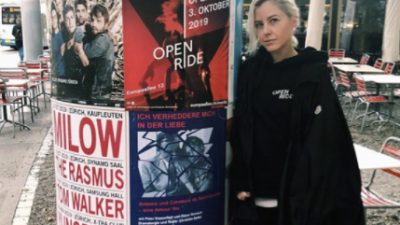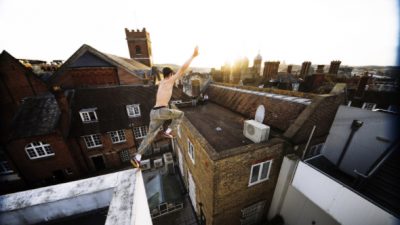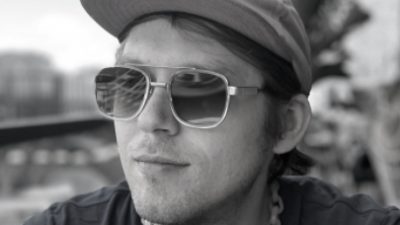We're back with a second offering of ideas from our KIN network of creators and connectors, as we start to formulate creative springboards for life after the lockdown...
With so much of the world still in lockdown, there is a shortage of reliable data out there for longterm strategic decision-making post-pandemic. But you’ve got to start somewhere. For us, that somewhere includes checking in on the perspectives of KIN – Crowd DNA’s proprietary global network of creators and connectors.
KIN provides us, and our clients, with access to people who are at the leading edge of their cultural space, their commercial endeavour or their community. This means we can not only look ahead, but also understand local, on-the-ground change as it happens.
From families to work to experiences – with so much in flux, it’s a significant time for brands to consider what they should continue with, and what they should change. Here are some provocations from our KIN network to use as points of inspiration in brainstorms, scenario planning sessions, or whenever else you need a quick shot of creativity.


Rebekah Abdeen: creative director, fitness trainer (Zurich)
Rebekah is a sports expert involved in the subcultures that spring up within and alongside the category, such as the fitness/music scene. She’s based in Zürich, where she’s creative director and head trainer at Open Ride, a boutique gym. We caught up with her about self-care and whether virtual workouts will live on post-Covid-19.
Fitness brands need to think beyond the live Covid-19 workout
“Live streaming of fitness content is a very overloaded space: there’s an abundance of workouts with nothing beyond a trainer in front of a camera, performing another workout to the masses. It’s a short term fix that won’t change how we exercise. Daybreaker is doing well in a virtual world by spreading vibes and good energy, rather than joining the overload of live content. We’ve also avoided it at Open Ride. We’re posting humour, music, insights and promoting our team as humans going through the same struggles.”
Covid-19 has cemented self-care as part of fitness
“There’s now major traffic for our self-care products, such as vegan protein powder. People seem to be digging into more self-care practises and the fitness industry needs to continue driving that energy, but with a focus on quality over quantity – we shouldn’t be encouraging manic consumption. Coming out of the pandemic, campaigns around elevated consciousness will be what’s most needed.”
Music culture remains strong
“When music venues were forced to close, the bookers, producers and studios were the ones to step in. Usually tucked away behind the booth, or locked away in studios, they’re now driving the entire nightlife scene, breaking into a cultural void and supporting the next generation of talent. Ozelot Studios in Zürich set up a community stream within three hours of the closures. They’re injecting new life into a space in danger of falling apart. They also streamed from the Open Ride studio and I was happy to further facilitate the cross-over between fitness and true music culture.”
Julius Kensan: editor in chief of lifestyle and culture magazine, Manual (Jakarta)
As Jakarta has switched from buzzing nightlife and art scene to a slumbering city, the content of Manual has had to change as well. Here Julius reflects on how the crisis is shifting the values of the hospitality businesses, but also how impending economic challenges will impact what we value, buy and wear.
A chance to build deeper relationships
“With the city in lockdown, bars and restaurants are closed, and some will never return. It will be the businesses that are able to maintain a deep relationship with their customers remotely during the lockdown that are more likely to survive post the pandemic. Most hospitality brands had apps pre-crisis, but now those with a strategy are developing their functionality and building loyalty. The apps will carry on being an essential part of the relationship between brands and customers from now on.”
We’ll care more about fewer material possessions
“The economic downturn means people will be able to buy less, but when they do spend money, they’ll care more about the quality and the unique story of that item – whether it’s fashion, tech or other luxury items. The few material things we’re willing to invest in will need to really prove they’re worthwhile; something their user can feel passionate about and cherish.”
Slow and sustainable fashion
“The fashion industry, in particular, will see a big change. Fast fashion will disappear and people will want to buy clothes that last. The trend where brands go to remote villages in Indonesia and train the people who live there how to make clothes and bags in a sustainable way will carry on after the crisis. The slow fashion trend fits with a more mindful mindset, with more focus on the relationship between a healthy planet and a healthy body and mind. Fashion will be more expensive, but consumers will buy less – but with more meaning.”


Hector Pitt: videographer, parkour athlete (London)
Hector is a parkour athlete and videographer, with a strong connection to the UK urban music scene. Aside from the inevitable postponement of many shoots, he’s still been able to focus on some areas of production. He told us how Covid-19 is changing the way he works and the knock-on effects seen on social media.
Captive audiences
“I’ve noticed there’s been a lot more music video releases, albums and new content; an increase in volume, basically. Brands are getting really good engagement with their fans as a result of these times.”
Efficiency is important, even when there’s more time
“Shooting a video requires contact and can’t be done remotely, but networking, pre-production and post-production are all still possible. Currently, my process involves loads of emails, file transferring, WhatsApp, editing programmes… there’s definitely a gap for a platform that integrates all these existing softwares together. It would speed things up, giving me more time to work on other things.”
An endless stream of… streaming
“Everyone is at home right now using social media more than ever. As bad as the situation is, there’s never been a better time to run a social campaign or drop a new release – but only if your product is something that can be streamed. People aren’t as able to buy non-essential goods, but there’s no restrictions on streaming.”
JD Shadel: writer, strategist, LGBTQ+ activist (Portland)
A writer, strategist, multimedia journalist and lo-fi producer based in Portland, Oregon, JD Shadel’s work mainly focuses on culture, travel and technology. We spoke about how to go beyond one-way streaming, why mundane games are the best form of lockdown escape and what type of travel will be popular post the quarantine.
Blending video calls and VR
“Several months into lockdown and the novelty of Zoom happy hours is wearing off. As we settle into the realities of pre-vaccine pandemic life, forward-thinking brands will find ways of innovating beyond the one-way live stream. They’ll move toward more interactive experiences, which incorporate a strong social component – by blending video calls and virtual reality. Online Town is an early example of this move toward more immersive chats.”
Socially enabled games – a happier version of social media
“We’ve already seen the gaming industry grow in the early phases of the pandemic. Socially enabled games like Animal Crossing, which takes the Sims experience to another level, will do particularly well. These games allow people to curate their own alternative and much happier version of social media.”
Return of the road trip
“International travel won’t be fun for a long time. Until there’s a widely distributed vaccine, restrictions on travel, mandatory quarantines and intrusive movement-tracking initiatives will likely deter travelers from taking big trips abroad. While young Americans have traveled internationally at unprecedented levels in recent years, 2020s will be all about the road trip. Watch for a surge in the ’50s California aesthetic, roadside attractions and close-to-home getaways.”
From 28 markets and counting – across the Americas, Europe, Asia, Africa and Australia – we work with our KIN network of leading edge collaborators to help brands stay at the forefront of culture.
Briefs they work on range from trends exploration to brand strategy and product and experience innovation. Since Covid-19, we’ve collaborated with them on identifying cultural signals that will impact on categories, pinpointing innovation opportunities and modifying brand comms to meet with new audience expectations.
To find out more about how to work with KIN, do get in touch
